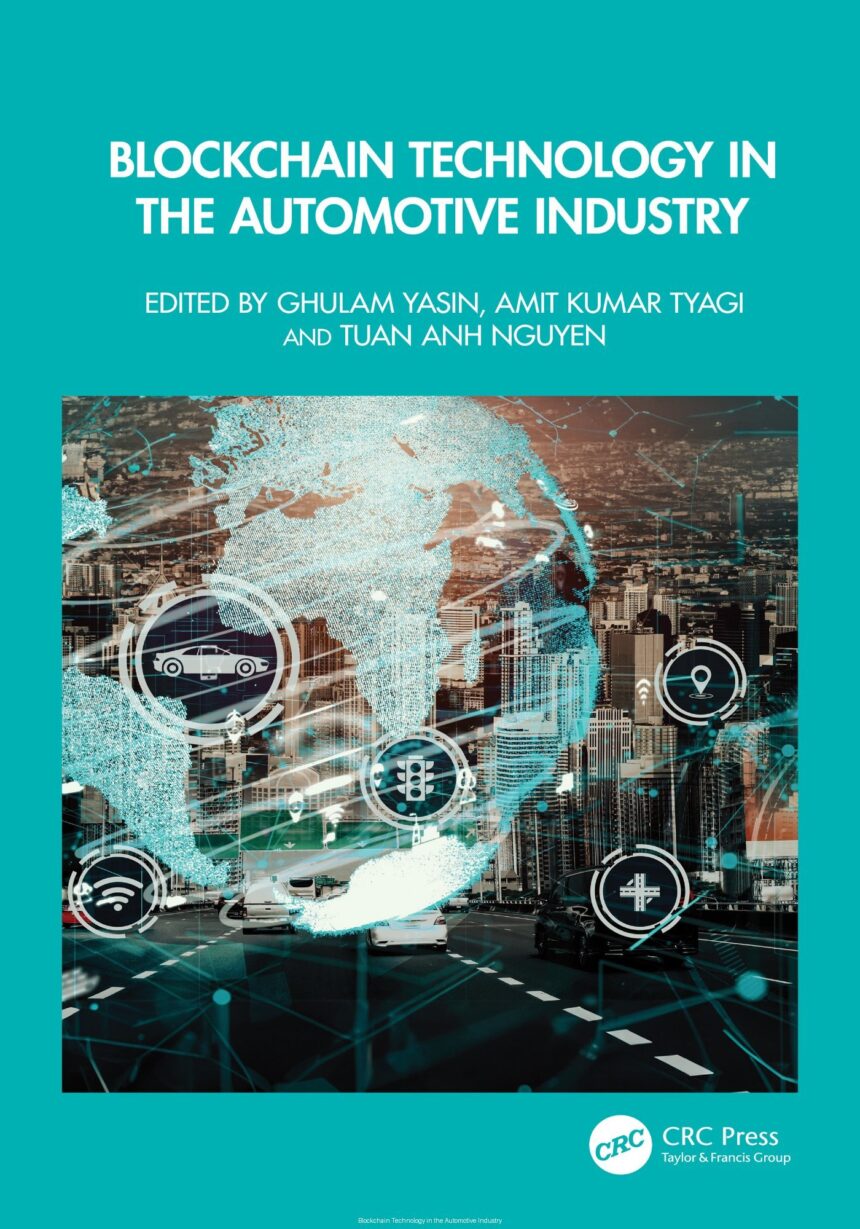English | 2024 | ISBN: 9781003450306 | 355 pages | PDF | 25.26 MB
Nowadays, the latest technologies can be found not only in healthcare and space application but also in hybrid supercars. Supercars and hypercars require high-performance materials with high strength, high stiffness, and light weight. For higher performance, car engines now become stronger but smaller and with lower fuel consumption (with cleaner exhaust). Currently, the automotive industry involves batch production, but in the near future, personalized and individualized automobiles with low and limited quantities can be fabricated in smart factories, which integrate all companies working in the supply chain, from manufacturing to marketing and services. In this regard, future automobiles in smart cities become more personalized (single user, limited version, personal spare parts), safer, and smarter.
Blockchain technology is the key to these future perspectives toward intelligent automobiles without any risk of safety, accident, security, theft, or traffic jam. In the current industry, blockchain technology can explore the interconnection of blockchain with other innovative technologies and trends, such as the Internet of Things (IoT) and artificial intelligence (AI), and analyzes the potential to transform business processes and whole industries if these innovations are applied jointly.
In the case of the manufacturing sector, manufacturing can provide a high return on investment. It was reported that $1 of investment in manufacturing can create ~$2.5 of economic activity. In addition, smart products should be fabricated from smart materials via the intelligent manufacturing system framework. In smart production, if the products and machines are integrated, embedded, or otherwise equipped with smart sensors and devices, the system can immediately collect the current operating parameters and predict the product quality and then communicate the optimal parameters to machines in the production line. For smart city applications, the global smart cities market size is expected to grow from USD 410.8 billion in 2020 to USD 820.7 billion by 2025 at a compound annual growth rate (CAGR) of 14.8%. For smart city applications, blockchain technology can build on decentralization, immutability, and consensus characteristics.
Additionally, intelligent wireless sensor networks can provide big information to monitor and manage the city’s regular operations and services, including traffic and transportation systems, street lighting systems, power plants, water supply networks, waste management, libraries, hospitals, schools, universities, etc. A blockchain-based distributed framework can be used for automobiles in the smart city. This framework can include a novel miner node selection algorithm for the blockchain-based distributed network architecture.
This book explores how blockchain technology can be used in the automotive industry from smart manufacturing to the smart city.

All Comments
Write more, thats all I have to say. Literally, it seems as though you relied on the video to make your point. You definitely know what youre talking about, why throw away your intelligence on just posting videos to your site when you could be giving us something enlightening to read?
Great article on integrating blockchain in the automotive world! It’s fascinating to see how technologies, like IoT and AI, are influencing the future of smart cities and personalized vehicles. Curious how blockchain addresses security issues, especially around smart vehicles’ interconnected systems. The detailed analysis here aligns with insights shared on the integration of blockchain in programming at this blog https://sebbie.pl/tag/java/, which explores similar innovations. Appreciate the thorough insights and look forward to more updates on this topic! Cheers.
Hi there, fascinating read on blockchain in the auto industry! It’s exciting to see how blockchain might reshape the landscape of future smart cities. I’ve always been intrigued by the synergy between blockchain, IoT, and manufacturing.
I did come across an article touching on similar topics at https://sebbie.pl/tag/javascript/. It’s more programming-focused but shares insights on integrating technologies like JavaScript in IoT systems, similar to what’s discussed here.
How do you see blockchain impacting personalized automobiles in terms of enhancing security and reducing traffic mishaps? Looking forward to learning more!
Thanks for this insightful article on blockchain in automotive! It’s fascinating to see how this technology can revolutionize smart manufacturing and smart cities. I’m curious about how blockchain meshes with AI in these processes. For anyone interested in the tech side of things, there’s more info on similar topics at https://sebbie.pl/tag/python/. It gives more context on AI’s role in these innovations. Looking forward to more articles like this!